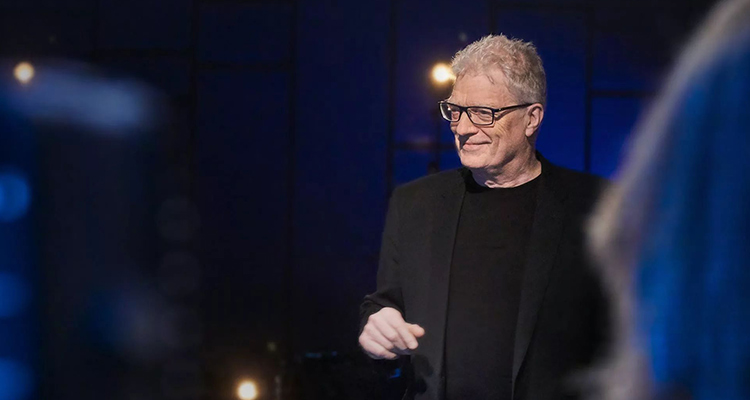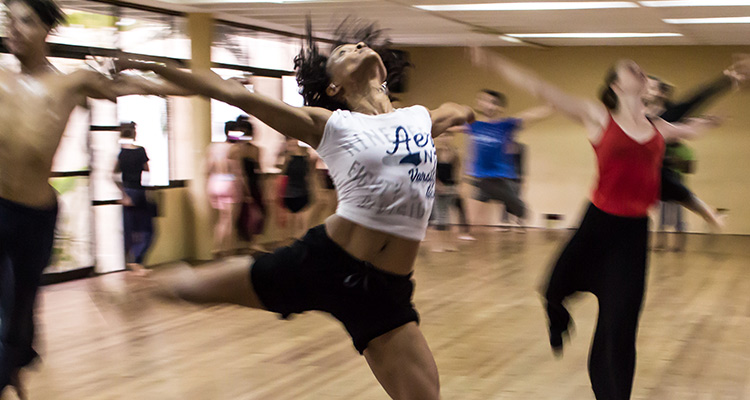

In the most-watched TED Talk of all time, Sir Kenneth Robinson passionately defends the importance of creativity and the arts in schools.
If you are interested in hearing his ideas or want to know how exchanges can kindle creativity and boost learning, we have the scoop for you in this post!
Do schools kill creativity? A TED Talk by Ken Robinson
Ken Robinson gave his talk, titled Do schools kill creativity?, in 2006. Since it went up online, it has been viewed over 67 million times on TED’s official website. Other versions of the video have also appeared on streaming sites, with just one of them amassing another 19 million views.
How did he manage to capture so many people’s attention speaking about education? The title of the talk obviously caused quite a stir and Robinson’s on-stage presence puts even some of today’s most celebrated comedians to shame. However, Robinson’s true success comes from his ideas and the fervent passion with which he defends them.
In his talk, Kenneth Robinson underlines the fact that he is not looking to take down the education system, as he himself is part of it. Rather, he argues that the system needs to be revamped, to take into account another aspect as important as literacy itself: creativity.
According to Robinson, to bolster this intrinsic quality in children and keep it from petering out, they mustn’t be afraid to make mistakes. He quotes Picasso to bring his point home: “All children are born artists; the problem is to remain an artist as we grow up”. Creativity can only flourish in the absence of fear.
The main problem in current education systems is that they are not designed to cater for intelligences that diverge from the set path. They are based on standardised models that fail to consider students’ diversity and differing talents.

An example of this is that across the globe maths and language take precedence over humanities, and we have to travel much further down the ranking if we intend to find the arts. In such an atmosphere, it is next to impossible to spark creativity and motivate students whose curiosities lie outside the norm.
Ken Robinson defends the need to add subjects such as dance and theatre. Firstly, they foster the development of skills that are not addressed in prominently theoretical classes.
Secondly, they help students to better understand their bodies and use them for creation and communication. The arts spark profound learning and imbue students with a critical point of view, the ability to think for themselves, greater levels of reading and listening comprehension, respect for others, and teamwork skills.
Check out another of our posts in which we talk about the educational benefits of bringing theatre into the classroom, including the enriching experiences this can provide when used as a key approach in exchanges.
Cultural exchanges: a tool for sparking curiosity, creativity and well-rounded learning
Creativity and curiosity are the keys to learning; they fuel our brains. If we kindle children’s and young people’s imaginations, they are capable of learning without outside help. This is the cornerstone of experience-based learning, in which students discover and absorb knowledge on their own.

Adding artistic activities to the education system is a way to bolster creativity and curiosity. If we also afford other intrinsically beneficial experiences such as cultural exchanges, we can ensure students receive much more enriching and well-rounded learning.
To quote Ken Robinson on the role of educators, “teachers should not pass on received information, but stimulate, engage and provoke”. And finally, “education is about learning. If there’s no learning going on, there’s no education going on. The whole point of education is to get people to learn”.

As we explained in another post, cultural exchanges light the spark that drives creativity. This in turn helps to ensure valuable, well-rounded, interdisciplinary learning that respects diversity and human values.
With today’s post we hoped to pay tribute to Sir Kenneth Robinson, a great thinker with trailblazing ideas who spent his entire career improving education systems around the globe. His death on 21 August may have left the world with great shoes to fill, but his legacy will never be forgotten.
At dothegap we offer a wide range of exchange experiences that you can take advantage of to share in the value of art and creativity. You can even propose your own exchange! Sign up and share your idea!





